In essence, the article claims that the idea of using fear to induce compliance with lockdown and NPIs did not come from the government conspiring with behavioural scientists in SPI-B, but rather from ignoring them. Not only that, they say fear is an ineffective way to persuade people engage in 'health protective behaviours'.
This article stuck in the craw, after the extensive research I had undertaken for my book A State of Fear: How the UK government weaponised fear during the Covid-19 pandemic. I don't deny the government's own agency in using fear but to deny it was at odds with official scientific advice is patently untrue.
The article opens with the shocking leaked government Whatsapp messages in which the former Secretary of State for Health and Social Care Matt Hancock openly proposed using fear — 'we must frighten the pants off everyone with the new strain' — and Cabinet Secretary Simon Case agreed that 'the fear/guilt factor vital', offering lurid insight into their base and disrespectful attitude towards the British people.
But was it right for Reicher et al to claim the government acted against its own scientific advice? Or did these embarrassing leaks happen to offer an excellent opportunity for SPI-B members to distance themselves from the egregious use of fear?
The professors' article then went on to use a hard-hitting article which appeared in The Telegraph in May 2021 to further back up the idea that it was the government which aimed to control the public through fear. Well, I have a little insight into that article, since every single quote came from the anonymous interviews I conducted with government advisors, including some of their colleagues on SPI-B. One told me that 'the way we have used fear is dystopian'. Another crowed that 'without a vaccine, psychology is your main weapon... Psychology has had a really good epidemic, actually.' And yet another advisor told me that they were 'stunned by the weaponisation of behavioural psychology'. These were Reicher et al's contemporaries and colleagues — not the government — breaking cover to express their discomfort and concerns.
If my first concern with this article was the flagrant denial of the advice contained within the infamous SPI-B document 'Options for increasing adherence to social distancing measures' published on the 22nd March 2020 to increase the level of personal threat felt by the complacent, my second significant concern was the astonishing idea that they could 'leave aside the ethical and political dimensions of this argument'. How can psychologists leave aside the ethical dimensions of using fear, whether for an article, or advising government and drafting the plans in the first place?
Professor Ellen Townsend and I decided to write a response to challenge these claims. We could not write a rapid response in the BMJ since we would have been limited to 600 words. Hence, thirteen months later, a more substantive peer-reviewed article — a form of 'response' — has been published in Clinical Psychology & Psychotherapy with co-authors professors Gemma Ahearne, Robert Dingwall, Lucy Easthope and Michael Riordan, 'The Three Rs of Fear Messaging in a Global Pandemic: Recommendations, Ramifications and Remediation'.
In our paper we lay out the evidence that SPI-B did support the use of fear messaging, contrary to existing psychological and disaster planning literature. Furthermore, it was never possible to simply target the 'complacent', who were not defined and were in fact doing a reasonable job of assessing their own risk. As such, the entire population was subject to fear messaging, with all of its damaging consequences.
SPI-B did recommend the use of fear. Not only that, even if they had not recommended fear, note that they did not criticise the government's campaign of fear in any of their frequent turns in the media spotlight. They lay the ethical dimensions to one side. Psychologists actively proposing the use of fear should not leave aside ethics. Indeed, they are bound by ethical codes of conduct. If they disagreed with such fear messaging they had many opportunities — as well as arguably moral and professional obligations — to object on public record to the mass evocation of fear and the ensuing harms. This is, in fact, why some SPI-B advisors broke cover to speak with me for my book research.
On 6 January 2021 retired NHS psychologist Dr Gary Sidley wrote to the British Psychological Society (BPS) about the unethical use of strategies to gain mass compliance, including fear, scapegoating and covert nudging.
One of the 'Statement of Values' in the BPS Code of Ethics & Conduct (2018) (12), stipulates:
3.1 'Psychologists value the dignity and worth of all persons, with sensitivity to the dynamics of perceived authority or influence over persons and peoples and with particular regard to people's rights.The use of fear causes harms. Even if lives are potentially saved by calibrating the risk of death where people have under-estimated risk, there are harms to mental and physical health by amplifying fear. Furthermore, the British public had an exaggerated understanding of the risks. One survey in July 2020 found that the British public thought 6-7% of the population had died from coronavirus, which was around 100 times the actual death rate.
In applying these values, Psychologists should consider: ... consent ... self-determination.
3.3 'Psychologists value their responsibilities ... to the general public ... including the avoidance of harm and the prevention of misuse or abuse of their contribution to society.'
So, given the negative ramifications, issues with effectiveness and ethical concerns, why did the SPI-B advisors recommend raising the perceived threat among the 'complacent'? This is not addressed in the article by Reicher et al
Among many reasons, realistically, one could be that the fears felt by psychologists themselves advising the government affected the quality of professional advice. One SPI-B advisor told me under cover of anonymity for A State of Fear that 'psychologists tend to be more on the neurotic end of the spectrum'.
Sometimes this was all too obvious. Implying that Boris Johnson should delay the road map, SPI-B's Professor Stephen Reicher tweeted in the run-up to the original Freedom Day of June 21:
'What sort of sign does he want? The Thames turned to blood? A plague of frogs? Writing on the wall that spells out 'we are all doomed if you don't stop your dithering'? But seriously, what sort of sign does he want?'No Biblical scale event followed Freedom Day.
Also in June 2021, Professor Susan Michie argued on Channel 5 that face coverings and social distancing measures should continue 'forever', comparing the behaviours to routine ones such as wearing seat belts and picking up dog poo. Face coverings make little to no difference to the spread of respiratory flu-like illnesses and Covid-19 according to this Cochrane review. The idea that we might wear them forever despite the many harms, but for little to no benefit is deranged.
Later in December 2021, amidst calls that another lockdown was needed, Professor Robert West, tweeted:
'It is now a near certainty that the UK will be seeing a hospitalisation rate that massively exceeds the capacity of the NHS. Many thousands of people have been condemned to death by The Conservative Government.'In fact, the UK never came close to SAGE's projected deaths of 600 to 6,000 a day, or exceeding NHS capacity.
These professors should not be singled out for experiencing fear during the pandemic, nor for performing something of a volte face about the strategies deployed to combat Covid-19. Incidences such as these are now coming hard and fast. Just this week, in a notably mind-blowing example of amnesia, presenter Susanne Reid confessed on ITV's Good Morning Britain 'Looking back I think we failed our children during the pandemic'. (This was in response to the news that school closures during Covid-19 mean that GCSE results will be poorer in England well into the 2030s. The impact on education and as well as mental health was predicted by experts at the time.) Yet at the time, GMB asked viewers a number of times whether schools should lock down, posing polls on Twitter, and interviewing Zero Covid fanatics who pushed this totally destructive idea. (Remember we don't have Zero Covid now, and we never will. If they had had their way, we'd still be locked down, masked up, and schools closed.)
Over the coming years, expect to hear many more people say they never supported Zero Covid, lockdowns, the rule of six, school closures, tiers, cancelling Christmas or face coverings...
During the period of the Covid-19 Inquiry, no one should be immune from self-reflection. Those involved in advising government should consider their ethics, biases and cognitive dissonance.
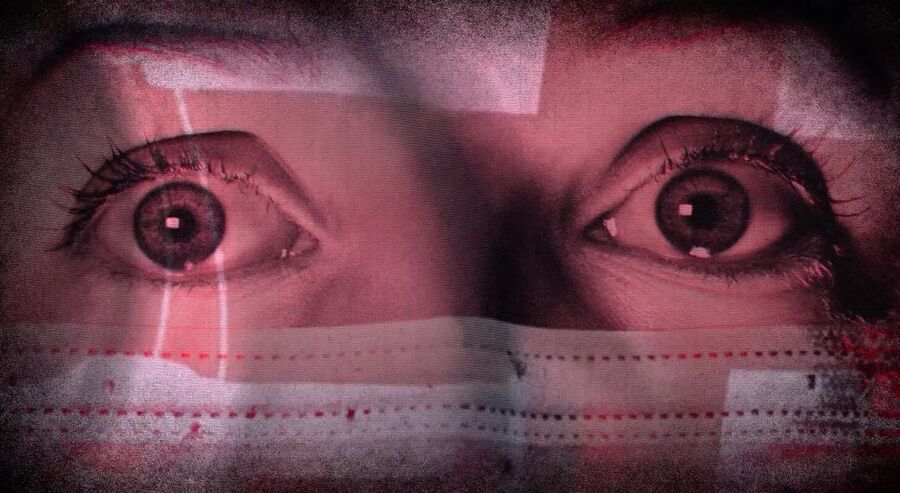
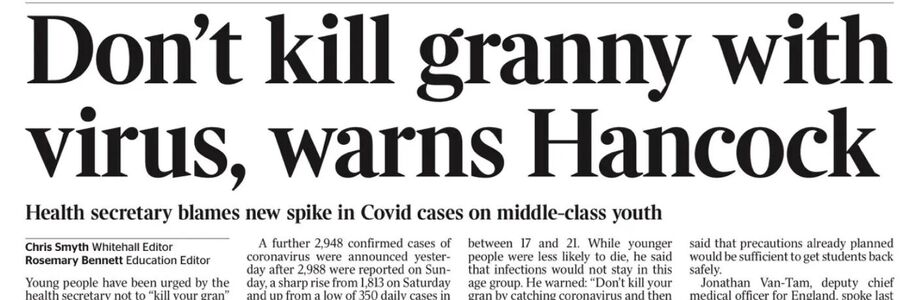
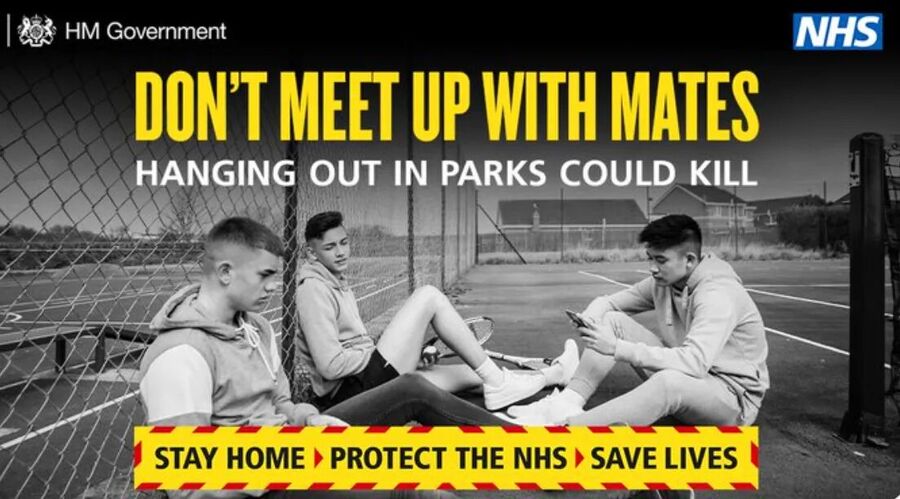
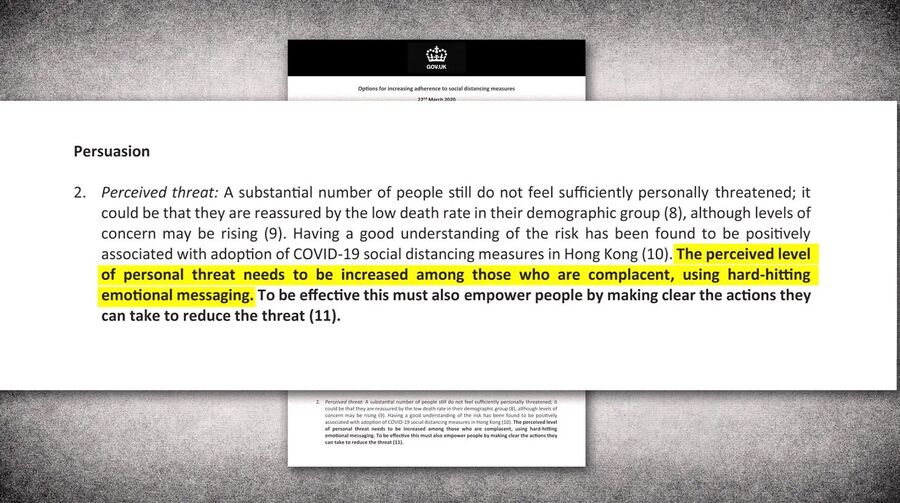
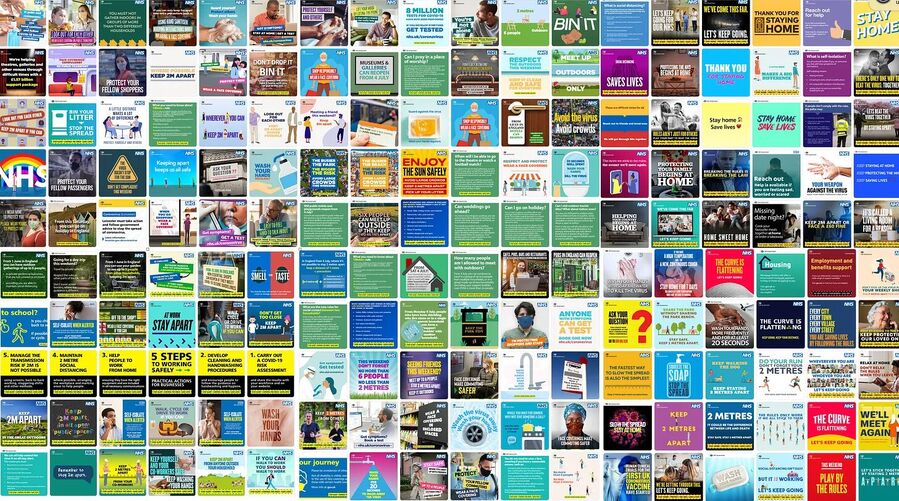



It does seem as though the wheels are coming off this plandemic and some professionals who should have known better are beginning to distance themselves from their original positions. As a consequence, the public no longer respect or believe their doctors and health professionals. We risk further plandemics unless all those political and medical shysters involved in the scam are brought before a court, starting with laughing boy and office gigolo Matt Hancock.